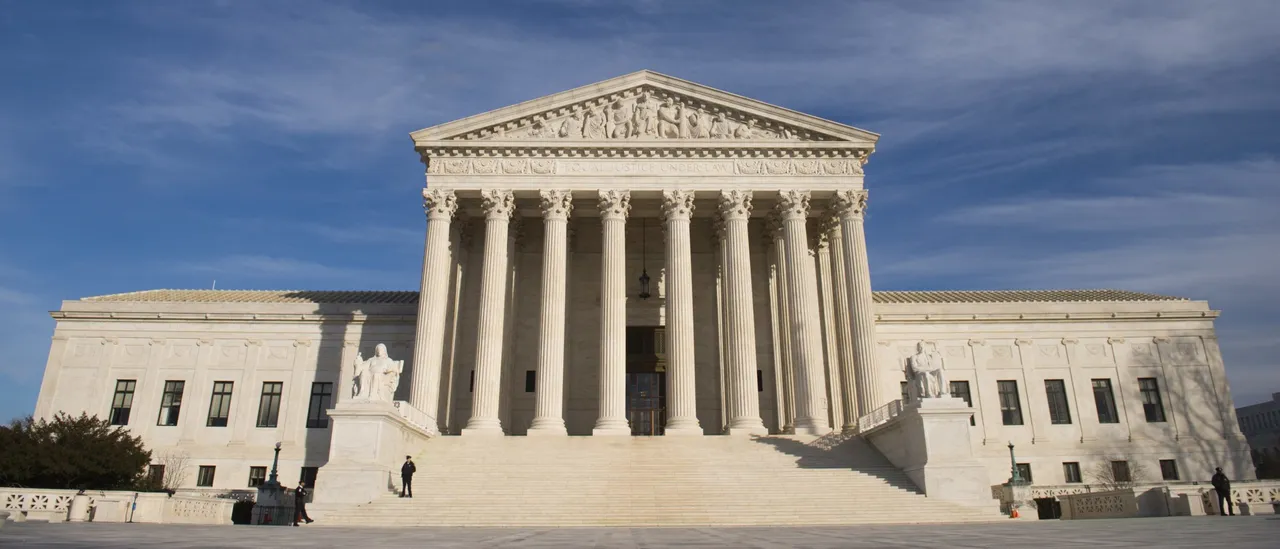[caption id="attachment_35249" align="alignnone" width="1280"]

( SAUL LOEB/AFP via Getty Images)[/caption]
By Katelynn Richardson. Media: Dailycaller
Men in women’s sports, race-based redistricting and campaign spending will top the docket at the Supreme Court during the coming term.
Oral arguments have not been scheduled for any of the 32 new cases the Supreme Court has agreed to take up, though most will be heard in the fall.
Issues like birthright citizenship and President Donald Trump’s tariffs, while not yet on the docket, appear on track to also make it there soon.
Below are some of the biggest cases to watch for when the Supreme Court’s 2025-2026 term begins in the fall.
Limits on coordinated party campaign spending could end when the Supreme Court considers National Republican Senatorial Committee v. Federal Election Commission, which it agreed to hear in June.
Now-Vice President JD Vance and former Republican Ohio Rep. Steve Chabot initially filed the lawsuit in 2022. The Department of Justice (DOJ) indicated it will not defend the restrictions, which it argues violate “core First Amendment rights.”
“The Department of Justice has a longstanding policy of defending challenged federal statutes but has determined that this is the rare case that warrants an exception to that general approach,” Solicitor General John Sauer wrote in a May filing.
Race-based districts will also face scrutiny as the Supreme Court reexamines an ongoing dispute over Louisiana’s congressional maps. The justices, who heard oral arguments on the matter in March but postponed issuing a ruling, requested an additional briefing Aug. 1 on whether the “intentional creation of a second majority-minority congressional district” is constitutional.
The case involves “competing demands” of Section 2 of the Voting Rights Act, which prohibits election practices that result in “denial or abridgement” of citizens to vote based on race, and the 14th Amendment’s Equal Protection Clause.
In Bost v. Illinois State Board of Elections, the justices will weigh a Republican congressman’s bid to challenge state rules that allow counting ballots after Election Day.
An appeals court found Illinois Rep. Mike Bost, along with two Republican presidential elector nominees, did not have standing to sue in August 2024.
Culture Wars
The Supreme Court agreed to consider Idaho and West Virginia’s efforts to ban men from competing in women’s sports. The cases involve challenges to the bans under the 14th Amendment’s Equal Protection Clause and Title IX.
More than half of the nation’s states have passed similar bans.
The justices agreed to hear the case at the same time the Trump administration is taking steps to protect women’s sports. In July, the administration sued California for refusing to comply after the Department of Education found the state in violation of federal civil rights law.
Another case slated for the coming term, Chiles v. Salazar, centers on a Colorado law that restricts counselors from dissuading minors from pursuing gender transitions but permits encouraging them. Kaley Chiles, a Christian counselor, argues this amounts to viewpoint-based censorship.
“Chiles’s clients voluntarily and specifically seek her counsel because they want the help her viewpoint provides,” her petition states. “Yet Colorado’s law forbids her from speaking, treating her professional license as a license for government censorship.”
In First Choice Women’s Resource Centers v. Platkin, the Supreme Court will consider New Jersey Attorney General Matthew Platkin’s demand for a pro-life pregnancy centers to turn over its donors in response to a subpoena. The question centers on whether the center can challenge the subpoena before it is enforced in state court.
“State law authorizes attorneys general to issue investigative demands based on a subjective suspicion of wrongdoing or a subjective determination that the demand is in the public interest,” the pro-life center wrote in its petition. “In recent years, state attorneys general have made increasing use of these broad investigative powers—sometimes employing them to target political opponents.”
Likely Grants
Birthright citizenship will likely return to the high court, this time for a ruling on the merits.
In June, the Supreme Court let Trump’s executive order take effect after limiting lower court’s authority to issue nationwide injunctions. However, a district court blocked it nationwide in July after a new class action lawsuit for migrant parents and unborn children was filed.
The DOJ stated in a court filing Wednesday that it would petition to have the case heard “expeditiously” so it can be settled in the coming term.
The justices are also likely to consider the president’s ability to fire executive officials at independent agencies.
The Supreme Court has faced the issue on the emergency docket, allowing Trump to move forward with removing several officials on a temporary basis. But it has not formally overruled precedent backing removal protections for those officials.
In the meantime, the court’s conservative majority said in May that “the Government faces greater risk of harm from an order allowing a removed officer to continue exercising the executive power than a wrongfully removed officer faces from being unable to perform her statutory duty.”
Justice Brett Kavanaugh suggested his colleagues should have used the Trump administration’s emergency application in July, where the majority greenlit Trump’s effort to Consumer Product Safety Commission (CPSC), to add the issue to the court’s merits docket.
Trump’s liberation day tariffs could also be added to the docket. Small businesses and Democrat-led states filed lawsuits arguing Trump does not have the authority to impose tariffs using emergency powers.
While the justices passed up their first opportunity to expedite appeals, the question of whether International Emergency Economic Powers Act (IEEPA) enables the president to impose sweeping tariffs is bound to return.
The U.S. Court of International Trade found the tariffs exceeded Trump’s authority in May, though its ruling was put on hold as the administration appeals. The Federal Circuit Court of Appeals heard oral arguments on the issue July 31.
 ( SAUL LOEB/AFP via Getty Images)[/caption]
( SAUL LOEB/AFP via Getty Images)[/caption]

 ( SAUL LOEB/AFP via Getty Images)[/caption]
( SAUL LOEB/AFP via Getty Images)[/caption]
 ( SAUL LOEB/AFP via Getty Images)[/caption]
( SAUL LOEB/AFP via Getty Images)[/caption]


